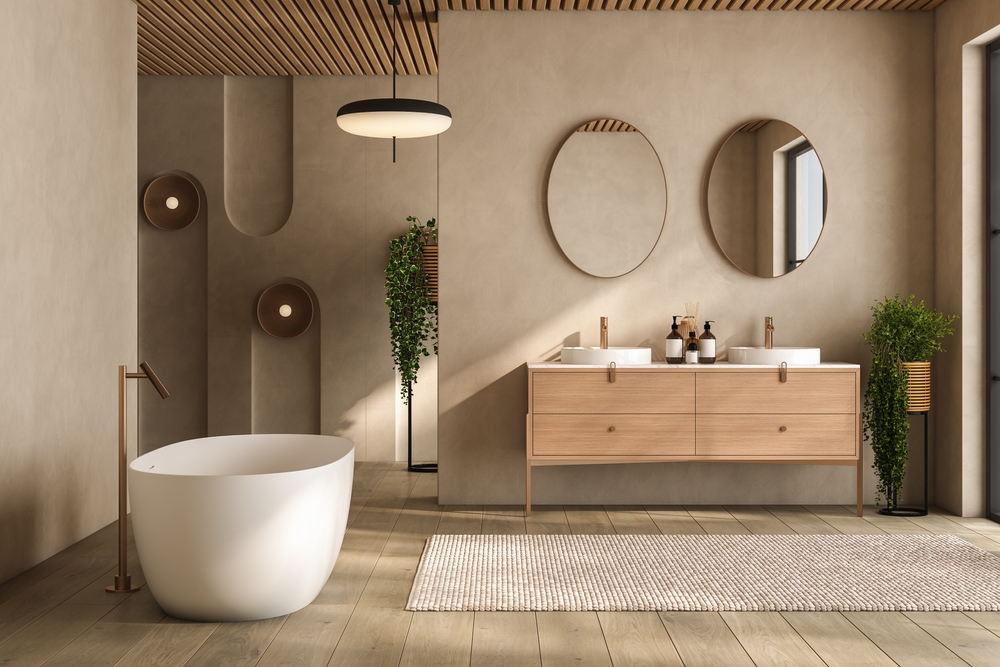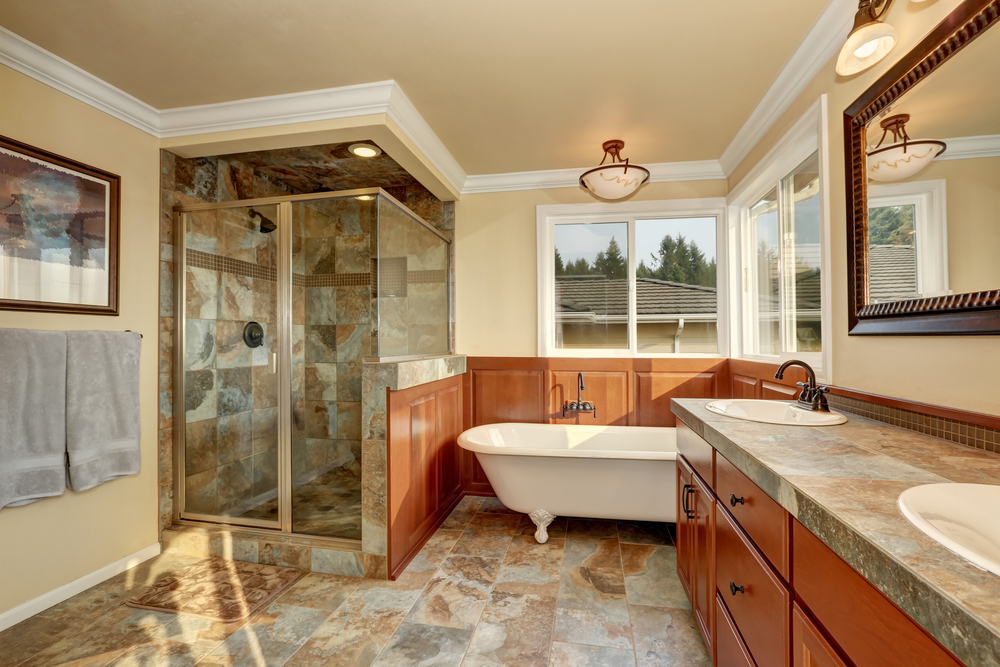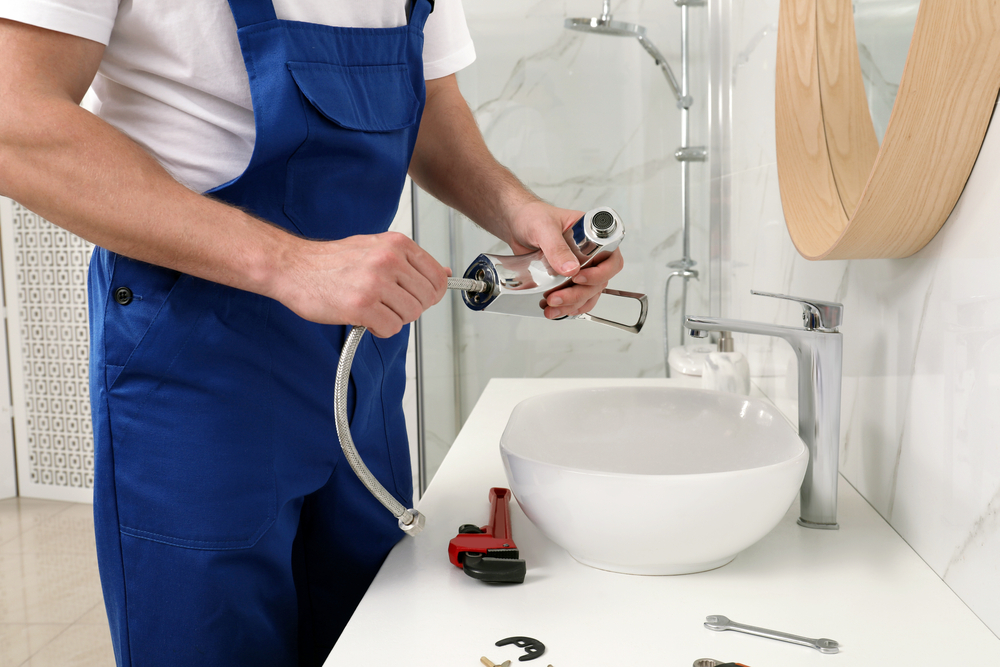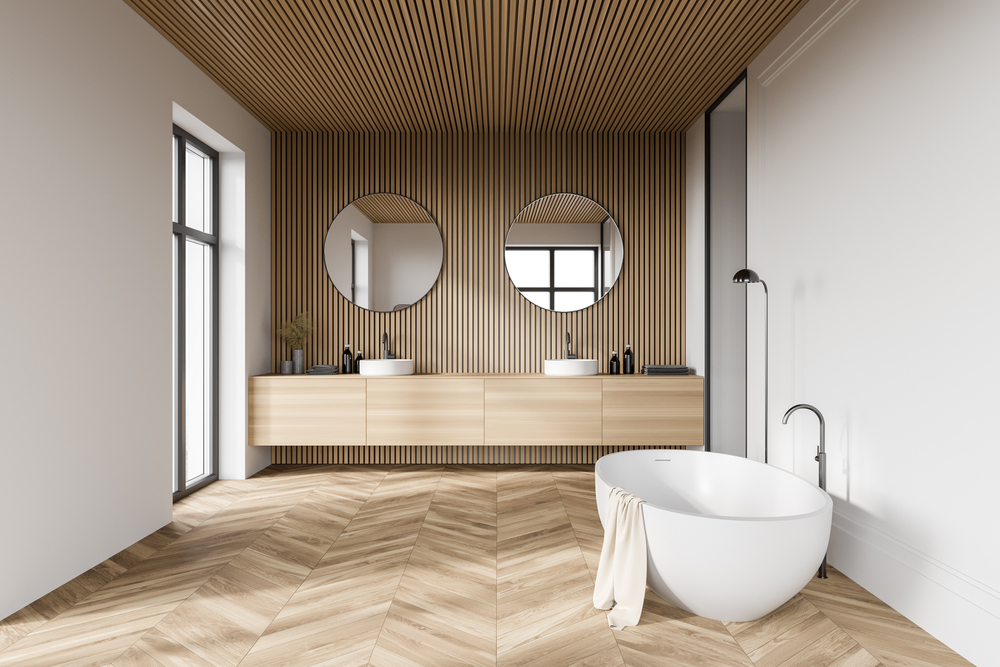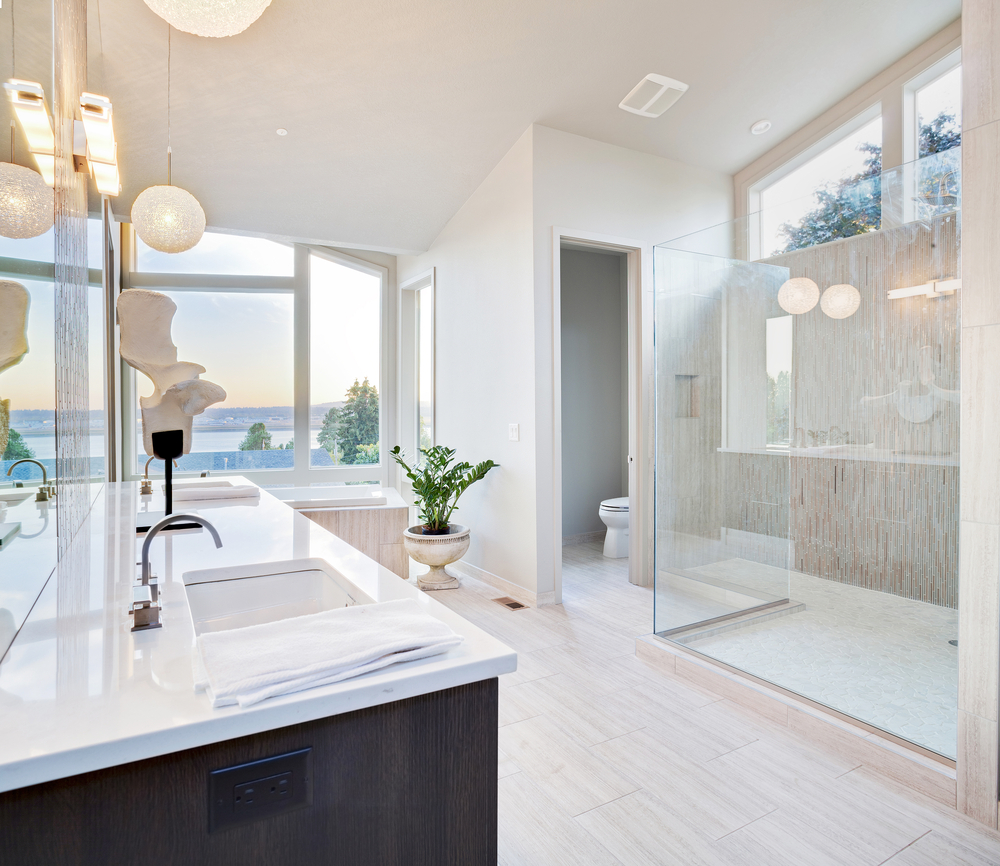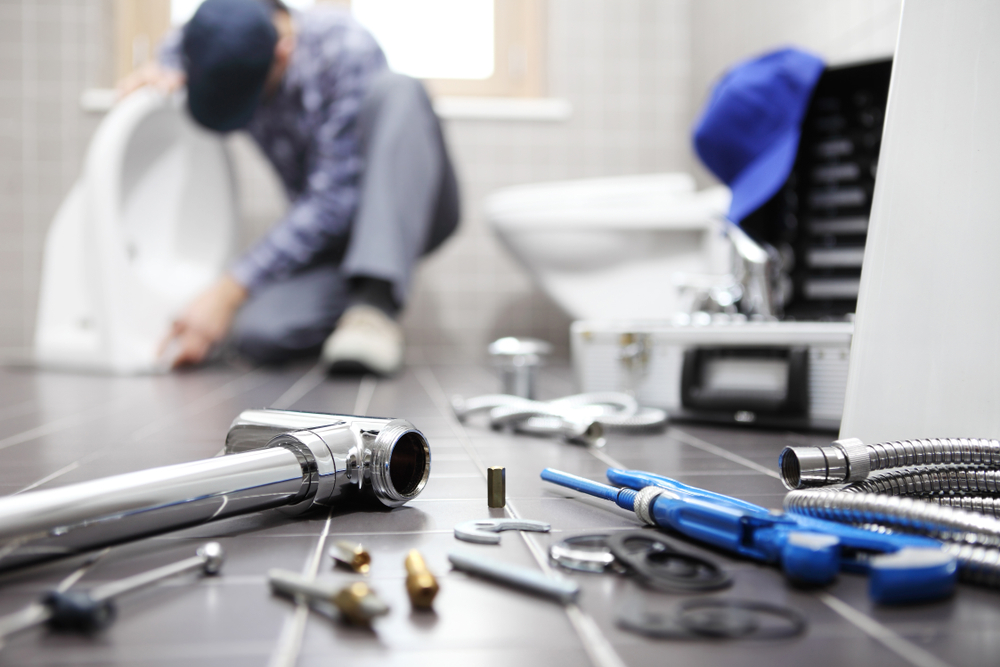
Why Material Choice Matters in Vancouver WA Bathrooms
Remodeling a bathroom in Vancouver, WA, involves more than just picking out a stylish vanity and a new color scheme. Here in the Pacific Northwest, our homes face a unique set of environmental challenges. The persistent rain, high humidity, and damp winters create an environment where moisture is a constant companion. Your bathroom, the wettest room in the house, is on the front lines of this battle.
Choosing the right materials is not just about aesthetics; it’s a crucial decision for the longevity and health of your home. Poor material choices can lead to a host of problems, including warped floors, peeling paint, and most concerningly, mold and mildew growth. These issues are not only costly to repair but can also pose health risks. This is why selecting durable, low-maintenance, and moisture-resistant materials is essential for any Vancouver bathroom remodel. A well-designed bathroom should look beautiful for years to come while standing up to our region’s damp climate.
Best Tile Options for Vancouver WA Bathrooms
Tile is a classic choice for bathrooms, and for good reason. It’s durable, water-resistant, and offers endless design possibilities. However, not all tiles are created equal, especially when dealing with the humidity of a Pacific Northwest home.
Ceramic vs. Porcelain Tile
Ceramic and porcelain are the two most popular tile choices for bathrooms. While they look similar, they have key differences in their construction and performance. Porcelain is made from a denser clay and fired at a higher temperature, making it less porous than ceramic. This gives porcelain a water absorption rate of 0.5% or less, making it an exceptional choice for high-moisture areas like shower walls and bathroom floors.
Ceramic tile is slightly more porous and can be more susceptible to water absorption if not properly glazed. However, it is a budget-friendly and versatile option that works well for backsplashes and walls outside the direct shower area. For flooring and wet zones in a Vancouver bathroom, we almost always recommend porcelain for its superior durability and water resistance. It provides peace of mind against moisture damage.
Natural Stone Tile
Natural stone tiles like marble, travertine, and slate bring an unmatched sense of luxury and organic beauty to a bathroom. Each piece is unique, creating a one-of-a-kind finish. However, these materials come with specific considerations for our humid climate. Stone is naturally porous and requires regular sealing to prevent water absorption, staining, and mold growth.
Marble, for instance, is beautiful but can be prone to scratching and etching from acidic products. Slate offers excellent texture and slip resistance but needs to be sealed correctly to maintain its integrity. If you love the look of natural stone, be prepared for a commitment to maintenance. An alternative is to use high-quality porcelain tile that mimics the look of natural stone, giving you the best of both worlds: stunning aesthetics without the upkeep.
Slip-Resistant and Heated Tile Flooring
Safety and comfort are paramount in a bathroom. Wet floors are a slipping hazard, which is why choosing a tile with a good coefficient of friction (COF) rating is important. Look for tiles with a matte or textured finish, as these provide better grip than glossy, smooth surfaces. Smaller tiles with more grout lines also naturally increase traction.
For an added touch of luxury and comfort during our cool, damp winters, consider installing heated tile flooring. An under-tile radiant heating system gently warms the floor, making those early morning trips to the bathroom much more pleasant. It also helps to dry out moisture on the floor more quickly, contributing to a healthier, drier bathroom environment. It’s an upgrade that many Vancouver homeowners find is well worth the investment.
Best Flooring Choices Beyond Tile
While tile is a fantastic option, several other flooring materials are perfectly suited for Vancouver’s damp conditions and offer different aesthetic appeals.
Luxury Vinyl Plank (LVP) and Vinyl Tile
Luxury Vinyl Plank (LVP) and Luxury Vinyl Tile (LVT) have become incredibly popular in PNW homes, and for good reason. Modern LVP is 100% waterproof, making it an ideal choice for bathrooms. It can handle splashes, spills, and high humidity without swelling, warping, or buckling. LVP is also warmer and softer underfoot than tile, which is a welcome feature on chilly mornings.
Available in a huge variety of realistic wood and stone looks, LVP offers high-end style on a more accessible budget. Its durable wear layer resists scratches and scuffs, making it a great low-maintenance option for busy family bathrooms. The combination of waterproofing, durability, and cost-effectiveness makes LVP a leading contender for bathroom flooring in our region.
Engineered Wood vs. Laminate
Many homeowners love the warm, classic look of wood, but solid hardwood is a major risk in a full bathroom. The constant exposure to moisture will cause it to warp and cup. However, engineered wood can be a viable alternative. Constructed with a real wood veneer over a stable plywood core, it is more dimensionally stable than solid hardwood and can better handle fluctuations in humidity. If you choose engineered wood, it’s critical to select a high-quality product with a durable, water-resistant finish and ensure it’s installed perfectly.
Laminate flooring, while often confused with vinyl, typically has a fiberboard core that is highly susceptible to water damage. Even small amounts of moisture seeping into the seams can cause the planks to swell and peel. For this reason, we generally advise against using laminate flooring in a full bathroom environment in Vancouver.
Concrete and Specialty Finishes
For a modern, industrial, or minimalist aesthetic, a finished concrete floor can be a striking choice. When properly sealed, concrete is completely waterproof and incredibly durable. It can be stained, polished, or textured to achieve various looks. It can also be paired with radiant heating for a surprisingly comfortable surface. This option requires a professional with specific expertise in residential concrete finishes, but the result is a unique and long-lasting floor.
Fixtures That Withstand Humidity
The fixtures you choose—from faucets to lighting—also need to be able to handle a high-moisture environment to avoid rust, corrosion, and electrical issues.
Faucets and Showerheads
When selecting faucets, showerheads, and other metal fixtures, the finish is just as important as the style. Look for high-quality base materials like solid brass, which is naturally resistant to corrosion. Finishes like PVD (Physical Vapor Deposition), brushed nickel, and stainless steel are known for their durability and resistance to water spots and tarnish. Matte black finishes are very popular, but be sure to choose one from a reputable brand to ensure the coating is durable and won’t chip or flake over time.
Vanities and Cabinet Materials
Bathroom cabinetry takes a lot of abuse from steam and splashes. Solid wood can expand and contract with changes in humidity, potentially leading to cracked joints or warped doors. While beautiful, it requires a very high-quality finish to be protected. MDF (Medium-Density Fiberboard) is a common, budget-friendly choice, but it acts like a sponge if its protective layer of paint or veneer is compromised.
For superior performance in a humid bathroom, consider vanities made from marine-grade plywood or PVC (Polyvinyl Chloride). These materials are engineered to be highly water-resistant and will not swell or degrade when exposed to moisture. They provide a stable and durable foundation for your vanity, ensuring it looks great for years.
Lighting Fixtures for Moisture-Rich Spaces
Safety is the top priority when it comes to bathroom lighting. All light fixtures installed in a bathroom, especially those inside or near a shower or tub, must be rated for use in damp or wet locations. A “damp-rated” fixture is suitable for general bathroom use, while a “wet-rated” fixture is required for inside the shower enclosure. These ratings ensure the fixtures are sealed to protect the electrical components from moisture, preventing short circuits and corrosion. LED options are excellent for energy efficiency and long life.
Moisture Control and Ventilation
Even with the best materials, your bathroom is not complete without a strategy to manage moisture. Proper ventilation is the single most important factor in preventing mold, mildew, and the premature breakdown of materials.
Why Ventilation Is Essential in Vancouver WA Bathrooms
A hot shower can introduce a significant amount of water vapor into the air, which then condenses on every cool surface. Without a way to remove this moist air, your bathroom becomes a perfect breeding ground for mold and mildew. This can damage drywall, grout, and caulking, and can also impact your home’s air quality. An effective ventilation system is not a luxury; it’s a necessity for protecting your investment and your family’s health.
Best Practices for Fans and Windows
Your exhaust fan is your bathroom’s most important tool. It should be sized correctly for the square footage of the room and run for at least 20-30 minutes after every shower to fully vent the humid air. Look for models with a low sone (sound) rating for quiet operation. Installing a timer or humidistat switch can automate this process, ensuring the fan runs as long as it needs to.
If possible, having an operable window in the bathroom is also a great way to introduce fresh air and help the space dry out. For privacy, consider frosted or textured glass. In rooms where a window isn’t feasible, a skylight can be another option to bring in natural light and, if it’s a venting model, additional airflow.
Budgeting for Quality Materials
A bathroom remodel is a significant investment, and it’s important to allocate your budget wisely to ensure a durable and beautiful result.
Where to Invest More
There are a few key areas where spending a little more upfront pays off in the long run. Invest in high-quality, waterproof flooring like porcelain tile or LVP. Prioritize a professional waterproofing system for your shower, like the Schluter-KERDI system. A powerful, quiet exhaust fan and quality plumbing fixtures from trusted brands are also non-negotiable investments. These are the functional elements that protect your home from water damage.
Where You Can Save
You can often find savings on more decorative elements without compromising quality. For instance, you might choose a more budget-friendly ceramic tile for a backsplash while splurging on porcelain for the floor. Lighting fixtures, mirrors, and accessories like towel bars can often be found at a variety of price points. Paint is another area where you can achieve a big impact for a relatively low cost.
Sample Material Cost Ranges in Vancouver WA
Material costs can vary widely based on quality and brand, but here are some general price ranges you might encounter in the Vancouver, WA area:
- Porcelain Tile: $5 – $20+ per square foot
- Luxury Vinyl Plank (LVP): $4 – $12 per square foot
- Vanities: $500 for a basic model to $5,000+ for a custom or high-end piece
- Faucets: $150 – $800+
- Exhaust Fans: $150 – $500 for a quality, quiet model
These are material costs only and do not include professional installation, which is crucial for ensuring everything performs as it should.
Conclusion
Choosing the Best Bathroom Materials for Vancouver WA Homes
Creating a bathroom that thrives in the Pacific Northwest climate comes down to smart choices. By focusing on materials known for their durability, moisture resistance, and low maintenance, you can build a space that is both beautiful and built to last. From waterproof porcelain and LVP flooring to corrosion-resistant fixtures and a robust ventilation system, every component plays a role in creating a healthy, resilient bathroom.
Navigating the vast world of materials can be overwhelming. Working with an experienced local contractor like Clean Cut Renovations ensures you have an expert guide. We can help you source the best materials for your budget and style, and provide the professional installation needed to protect your home for years to come.

